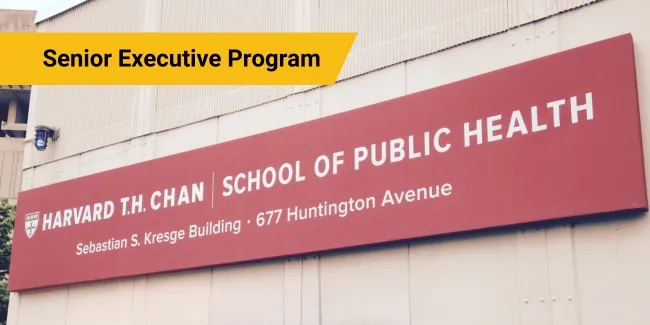Why Lifestyle Medicine Can Help You Effectively Tackle Illnesses

We live in a time when everything is available at the click of a button. And, we’re more connected than we ever were. Such connections have increased our dependency on devices and conveniences that have led to sedentary lifestyles. We move less, we sit more, we snack too much and we hydrate too little. A life that is too comfortable can have adverse side effects. Such as high stress, type two diabetes, cancer, or metabolic illnesses, including obesity. In this age of lifestyle-driven health problems, lifestyle medicine has been proposed as an effective solution and has become integral to healthcare.
A 2022 report by the World Health Organization (WHO) drives home the need for lifestyle medicine. The WHO posits that in this decade, nearly 500 million people could contract heart disease, obesity, diabetes, or another Noncommunicable Disease (NCD). That is not a figure that should be ignored. And, lifestyle medicine offers valuable insights and solutions to combat these chronic modern-age illnesses effectively.
Lifestyle Medicine 101
According to Dr. James M. Rippe, the founder, and director of the Rippe Lifestyle Institute (and an authority on preventive cardiology, health, and fitness),
“Lifestyle medicine involves the integration of lifestyle practices into the modern practice of medicine. Both to lower the risk factors for chronic disease and/or, if the disease is already present, serve as an adjunct in its therapy. Lifestyle medicine brings together sound, scientific evidence in diverse health-related fields. to assist the clinician in the process of not only treating disease but also promoting good health.”
The American College of Lifestyle Medicine defines it as “the use of lifestyle interventions in the treatment and management of diseases.”
It really isn’t very hard to understand what lifestyle medicine should be. To a great extent, it is common sense. Breaking formed (poor) habits, making better food choices, quitting smoking, lowering alcohol consumption, exercising more, etc. These comprise the six pillars of lifestyle medicine, which are detailed below:
Nutrition
Your mom may have been nagging you for a reason. You have to eat your leafy greens for a well-rounded, whole-food diet that minimizes junk and ensures you eat properly. When it comes to food, the Harvard Healthy Eating Plate is a great primer to follow. It gives you some direction about healthy eating. The eating plate is available in more than 25 languages. It tells you the proportion of whole grains (1/4), vegetables and fruit (1/2), protein (1/4), and healthy plant oils (in moderation) that are needed for balanced meals. After all, you are what you eat, no?
Physical Movement
Exercise, exercise, and more exercise. You don’t have to win any strength-training contests, just keep on moving. That’s what smartwatches are for, after all—to get you moving. Lethargy, inertia, and marathon dates with your couch are a strict no-no.
Stress Management
Unfortunately, this is one of the most ubiquitous problems of modern life—and the cause of several health problems (high blood pressure comes to mind). Managing the stresses that we face in our daily lives is integral to lifestyle medicine. If you find a way to manage this, you can reduce anxiety, depression even immune dysfunction.
Good-Quality Sleep
Snoozing on the couch in the middle of binge-watching Netflix is not good-quality sleep by any means. This refers to restful sleeping in your comfortable bed, the kind that makes you feel refreshed on waking up. You need to go through what is known as the sleep cycle. Sleep is broadly classified into two stages. During the first stage or the Rapid Eye Movement (REM) stage, your eyes blink rapidly when closed. This is when you have all your dreams. The next stage is Non-Rapid Eye Movement (NREM), which spans the time that you start to fall asleep, go into a light sleep, and finally, slip into a deep sleep—the breathing slows, blood pressure drops and your body works to replenish its energy. The requisite sleep cycle is approximately seven to nine-and-a-half hours.
Pay attention to the quality of your sleep, and you can improve insulin resistance, curb hunger pangs and avoid lethargy, as well as other benefits.
Forging Positive Social Connections
Forget about your Instagram followers for a moment. Meet people, talk to them, and surround yourself with positive connections. Mental and emotional health is as important as physical health, so avoid negative and toxic environments, such as constant arguments or TV shows with a high level of violence.
Avoid Risky Substances
Toxic habits, even in small quantities, are best avoided because they have long-term consequences. So really try and minimize the consumption of risky substances, such as tobacco, alcohol, and drugs.
Health Coaching: Getting a Little Help
We know, it’s easier said than done. Making changes and breaking old habits is not easy—even more so when you go it alone. But who said you needed to do it on your own? That’s what health coaches are for, giving you support to help you achieve your goals. They can be pillars of strength and motivation to help you stay the course. Health coaches encourage patients to adopt healthy lifestyles and guide them in their actions to make it happen. The ultimate aim should be to engender self-awareness and self-motivation in patients to change their behaviors and make better lifestyle choices. The idea is to be available to patients and guide them as they undertake a lifestyle-altering journey.
So, is health coaching effective? The evidence says yes, it very much is.
According to the Australian Journal of General Practice, it is valuable in the following areas:
- Significantly improving patients’ physiological, behavioral, psychological, and social outcomes
- Significantly improving one or more of the behaviors of nutrition, physical activity, weight management, or medication adherence
- Improving glycemic control and reducing glycated hemoglobin for patients with type two diabetes
- Improving medication adherence
- Assisting with weight loss and increased levels of motivation and personal satisfaction
- Providing an effective strategy to promote reductions in energy intake, body weight, and body mass index
- Improving physical activity
Source: Australian Journal of General Practice
The global health coaching market was valued at $8.14 billion in 2022, a clear indicator of people’s willingness to turn to a robust support system to help them lead healthy lives. The idea that good habits, positive lifestyle changes, and eschewing the bad stuff can prevent or, at the very least, delay the onset of chronic illness is a compelling thought.
Preventive Medicine: Why Cure When You Can Prevent?
As the adage goes, prevention is better than cure, and prevention (instead of management and treatment) is also closely associated with lifestyle medicine. It’s simple—if you have developed good eating habits, exercise regularly, get enough sleep, and generally lead a healthy lifestyle, chances are that you can avoid many chronic illnesses. Preventive health also means regular screening, taking tests, getting your shots as needed, and staying active. A Nurses’ Health Study showed that 80% of all heart disease and 91% of diabetes in women could be eliminated if women adopted positive lifestyle practices. That is compelling evidence that should be taken seriously. And the pandemic certainly drove home certain truths.
Lifestyle Medicine and Its Importance During COVID-19
If the pandemic and resulting lockdowns taught us anything, it is the importance of a healthy lifestyle, and previously existing habits also came under the microscope. A U.K. study in 2020 revealed that certain kinds of conditions or proclivities increased the chances of contracting the virus and hospitalization due to COVID-19. Obesity, for example, increased the risk of severe COVID-19 by 97%, and smokers were at higher risk of developing symptomatic COVID-19. Conversely, 41% of respondents reported weight gains during the pandemic, and 48% were more depressed within two months of the lockdown in the U.K.
If COVID-19 and its ever-looming shadow taught us anything, it is the value of good habits, positive influences, and making a bit more effort to lead a healthier lifestyle.
The important thing is that you don’t have to do it alone. People in the know—health coaches, personal trainers, and health care professionals—know lifestyle medicine’s tangible benefits. In the U.S., even in a pandemic-riddled 2021, there was a 41% increase in job listings for nutritionists. The need for nutritionists, health coaches, and preventive medicine practitioners shows no sign of waning. The global personalized nutrition market was $9.06 billion in 2021 and is expected to reach $20.14 billion by 2029.
An Invaluable Health and Wellness Program
Harvard Medical School’s Health and Wellness Program aims to provide wellness and healthcare professionals with the tools and knowledge to understand the positive impact that lifestyle medicine can have on health. The program is now available on Emeritus. It is equipped with evidence-based resources and proven methods to motivate healthy changes in nutrition programs. It will enable you to gain a deeper insight into the interconnection of lifestyle, nutrition, and health and give you the tools to design a healthier lifestyle for yourself and your clients. In a world with stressors in every sphere of modern life, this program can equip healthcare professionals to be the lifeline that empowers people to make the right changes and lead full lives.
By Gauri Kelkar
Write to us at content@emeritus.org









































